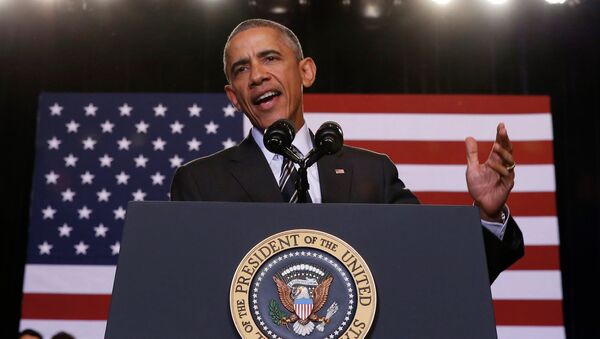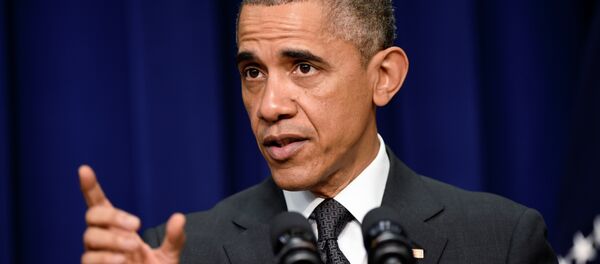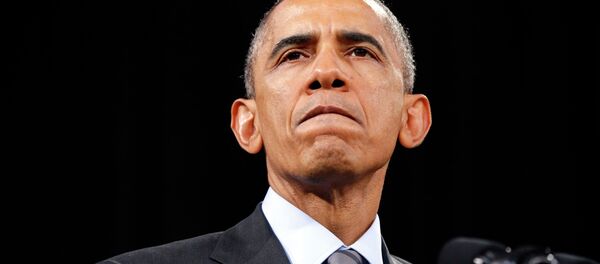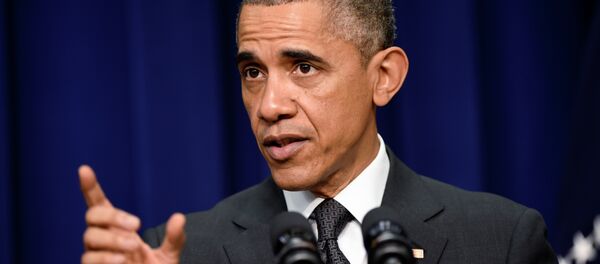Over the past month Obama has traveled across the United States, giving a preview of what he will present when he addresses Congress, and allowing members of the Republican opposition in the House and Senate to mount a response.
White House Guest List Indicates President's Agenda
On Monday, the White House published a list of 22 guests from the general public that will be attending the State of the Union speech, giving some sense of the president’s priorities entering 2015.
Among the individuals, invited to attend the State of the Union and watch the president’s speech with First Lady Michelle Obama, are an individual enrolled in a community college, an African-American teenager from Chicago, focused on safety in his community, prisoners released from Cuba late last year, patients who received care through the Affordable Care Act, a wounded veteran from Afghanistan, individuals struggling with the current US minimum wage, and young immigrants to the United States.
Domestic Issues Top the Agenda
On Tuesday, the president is expected to raise a number of domestic issues with members of Congress, including raising the minimum wage, providing students with two years of free community college, tax hikes for the rich and extended tax breaks for lower income families, alongside cuts to mortgage insurance rates.
Senate Majority Leader Mitch McConnell’s spokesperson referred to the president’s tax proposal as “redistributing wealth,” arguing that the president’s proposed reforms, explained in a Friday White House fact sheet, will overcomplicate the US tax code, rather than simplify it.
Senate Finance Committee Chairman Orrin Hatch also blasted President Obama for "slapping American small businesses, savers and investors with more tax hikes” with his new tax proposal that will be fully unveiled on Tuesday.
“With no details or information on the cost, this seems more like a talking point than a plan,” Boehner’s spokesperson told the press when the plan was revealed last week.
One area of the Obama administration’s domestic agenda that may receive broad support is the possibility of the president putting criminal justice reform on the agenda. The issue has grabbed national headlines in the wake of numerous police killings of young, African-Americans. Currently there are multiple pieces of legislation to address racial inequality in the US criminal justice system that enjoy bipartisan congressional support.
National Security, International Issues
In the national security arena, President Obama appears positioned to gain traction on his agenda, which was outlined in the president’s Friday press conference with British Prime Minister David Cameron.
“I’m glad [Obama] is pushing to address cyber legislation,” said Republican Sen. Kelly Ayotte of New Hampshire when the president rolled out his cyber initiative last week. Ayotte, a leading member of the Senate Armed Services Committee added that the US has stalled such legislation in the past, noting, “I think we can’t afford to stall anymore.”
However, on issues of homeland security, the Congress and the president still remain divided, with a temporary spending limit looming over the US Department of Homeland Security (DHS) until February. Republican lawmakers imposed the spending limit on the DHS at the end of last year as a mechanism to defund President Obama’s November executive action on immigration reform.
Obama has stated on multiple occasions that he will veto any DHS appropriations bill, defunding his immigration action, creating uncertainty both on the status of the executive action and the continued funding for the third largest US federal agency, DHS.
Presidential Veto Threat
“There is so much we can get accomplished for the American people, if the president’s willing to work with us,” said Senate Majority Leader Mitch McConnell in a press release last week.
President Obama has made similar overtures for collaboration to the new, Republican-controlled Congress, but has so far stood his ground on key policy positions. In the first week the US Congress was in session, Obama threatened to veto nearly half a dozen pieces of legislation, including new sanctions on Iran, and legislation for the construction of the Keystone XL pipeline.
During his six years in office, Obama has vetoed only two pieces of legislation, but has also enjoyed majority support in both houses of Congress in his first term, and a Democratic majority in the Senate for the first two years of his second term.
The upcoming congressional work session, following Tuesday’s State of the Union address, will last until the late-February district working session. The legislative agenda will be set by House and Senate Republicans, but also informed by initiatives introduced by President Obama in his Tuesday address.








